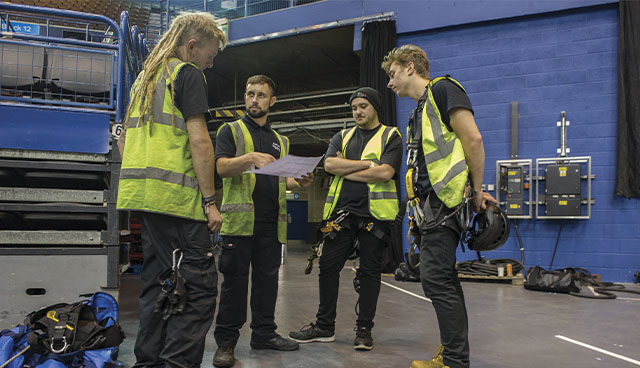Barriers remain to apprenticeship uptake

In April 2021, the then-Minister for the Economy Diane Dodds MLA stated that apprenticeships will “be a key component of the economic recovery as we seek to build the local skills base”, but barriers to apprenticeships remain a concern.
The Economic Recovery Action Plan set out by Dodds in February 2021 set out how the Executive would attempt to steer Northern Ireland’s recovery from the economic damage wrought by the Covid-19 pandemic. Key to that recovery was investment in skills and key to that investment in turn was a pledge to widen accessibility to apprenticeships, with Dodds committing to making apprenticeships at levels 2 and 3 available to those over the age of 25. The previous September, a £26 million apprenticeship recovery package was also announced, which included incentives for each new apprenticeship created and payment to employers who returned and retained apprentices who had been placed on furlough.
However, barriers to accessing apprenticeships remain despite the Executive’s commitment to the widening of the positions under new Economy Minister Gordon Lyons MLA. The minimum wage for apprentices in their first year of apprenticeship or under 19 is £4.30 an hour, for those over 19 this rises to £6.56 an hour, £8.36 an hour for those between 21 and 22, and to £8.91 an hour for those aged 23 and over. According to the campaign group the Living Wage Foundation, the real living wage was £9.90 per hour in the UK (not including London) in November 2021. Given the inflation of the first quarter of 2022, this figure will have only risen. Apprentices at level 2 and 3 over the age of 25 under these plans would thus make £34.65 less than living wage over a 35-hour working week, a figure that would only grow the younger the apprentice.
Other financial concerns are also high on the list of barriers; research has shown that schoolchildren on free school meals (a proxy for household income) are less likely to take up apprenticeships. Regardless of their age, an apprentice is no longer classed as a dependent, meaning their family may lose benefits such as child benefit, child tax credit, council tax reductions and housing benefit; paired with the meagre wages for young apprentices, this can often mean that families are incurring a financial loss in order for their child to take up a position.
The stripping of student status also impacts families financially as it means young apprentices are not eligible for student loans, or free student meals, meaning that further economic strains are placed on those who choose to follow the training path. Along with a general lack of awareness around programmes, lack of transferability and a perceived negative image among some parents, barriers remain to be knocked if Northern Ireland is to truly utilise apprenticeships as key to its economic recovery.
In its original draft form, the Skills Strategy identified three major policy objectives and three underpinning policy enablers.





